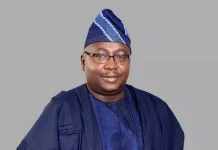Indications have emerged that an error of judgment by the federal government of Nigeria under former President Olusegun Obasanjo in the revocation in 2001 of the Oil Prospecting Licence (OPL 245) initially awarded to Malabu Oil and Gas Limited may have created the most controversial oil industry settlement agreement in Nigeria’s history.
Documents tendered before an Abuja Federal High Court by the former Attorney General of the Federation, Mr. Mohammed Bello Adoke in a suit brought against the Attorney General of the Federation (ref. FHC/ABJ/CS/446/2017) seeking to prove his innocence in the 1.1 Billion dollars payment to Malabu Oil and Gas Limited, show that the federal government may have mismanaged the revocation of OPL 245 oil block and the eventual settlement agreement reached between the federal government of Nigeria and Malabu Oil and Gas Limited in November, 2006.
The court documents show that the execution of the 1.1 Billion dollars Settlement Agreement reached in November 2006 and the implementation of the Malabu Resolution Agreement on the 29th of April, 2011 were done in line with the directive of Obasanjo who had approved the original agreement in 2006.
Accordingly, the error of judgment by the Obasanjo government which revoked the OPL245 contract in 2001 may have resulted from the poor judgment by the government which effected the revocation of the Malabu contract without taking cognizance of the legal lacuna that had brought embarrassment to the federal government of Nigeria before the matter was eventually settled out of court.
The allocation of OPL 245 to Malabu was withdrawn and the title deed revoked on the 2nd of July 2001 based on the directive of the then Presidential Adviser on Petroleum and Energy. Consequently, OPL 245 was put on offer by the Federal Government of Nigeria and three other companies namely; Chevron, Exxon/Mobil and Shell Nigeria Ultra-Deep (SNUD) were involved in the bid which eventually went to SNUD as the highest bidder with an offer of 210 million dollars as the signature bonus on the oil block which was taken from Malabu Oil and Gas Limited after it made an initial payment of $2,040,000.00 (two million forty thousand dollars) with a balance of $207,960,000.00 (two hundred and seven million nine hundred and sixty thousand dollars and to be paid. Despite the initial commitment by Malabu, SNUD received the award to operate OPL 245 from the federal government of Nigeria on May 23, 2002.
There are indications that the Obasanjo government may have acted on emotion rather than relying on a point of law in revoking the contract which was awarded to Malabu Oil and Gas Limited by the Abacha government in 1998. This was to set the stage for protracted and multiple litigations between the federal government of Nigeria and Malabu Oil and Gas Limited which defended its rights to OPL 245 in several law suits in Nigeria and abroad until a settlement agreement was reached in November, 2006 and eventual resolution agreement executed in April, 2011.
The terms of the Out-of-Court Settlement Agreement between the federal government of Nigeria and Malabu Oil and Gas Limited in 2006 stipulated that Malabu’s rights to OPL 245 were fully restored as though it were never revoked by the federal government. A report of the Adhoc Committee of the House Representatives on the OPL245 transaction which is among evidence presented by Adoke before the Federal High Court in Abuja reads in part “At the inception of this Administration, the government of the Federal Republic of Nigeria was already bound by the terms of the of the Settlement Agreement of 30th of November, 2006 which had been approved by President Olusegun Obasanjo and the terms of which were in line with the resolution of the House of Representatives that OPL 245 be restored to Malabu.”
The report further said that the decision of the federal ministry Resources to give effect to the settlement agreement which had been confirmed as binding on the Federal Government of Nigeria under Obasanjo as a consent judgement and that the advice received in executing the settlement agreement which includes the role of the former Attorney General and Minister of Justice was in line with the resolution of the House of Representatives on the issue.
The former Justice Minister has approached the federal high court in Abuja, following a case filed against him by the Economic and Financial Crimes Commission (EFCC) in December, 2016, seeking the determination of: “whether having regard to the provisions of section 5 (1) of the constitution of the Federal Republic of Nigeria, 1999 as amended, the executive powers of the federation are vested in the president to exercise same directly or through a Minister of the Government of the Federation”.
Also, Adoke is also seeking the court to determine whether as a minister of the government of the federation, he could be directed to exercise the executive powers vested in the president … “And whether he could be held personally liable for carrying out the lawful directives and/or implementing the lawful approvals of the president.”
Adoke is therefore seeking a declaration by the federal high court that his involvement in the negotiations leading to the implementation of the settlement agreement dated 30th November, 2006 between Malabu Oil and Gas Limited and the Federal Government of Nigeria as well as the eventual execution of the Oil Block 245 Malabu Resolution Agreement dated 29th April, 2011 between the Federal Government of Nigeria and Malabu Oil and gas Limited was in furtherance of “lawful directives/approval of the President in the exercise of his executive powers.”
The Malabu Settlement Agreement was in line with the terms of the out-of-court settlement entered into by Malabu Oil and Gas Limited and the Federal Government of Nigeria on November 30, 2006 for which the oil company agreed to discontinue all court cases filed against the Federal Government upon the execution of the terms of the Malabu Resolution Agreement.



